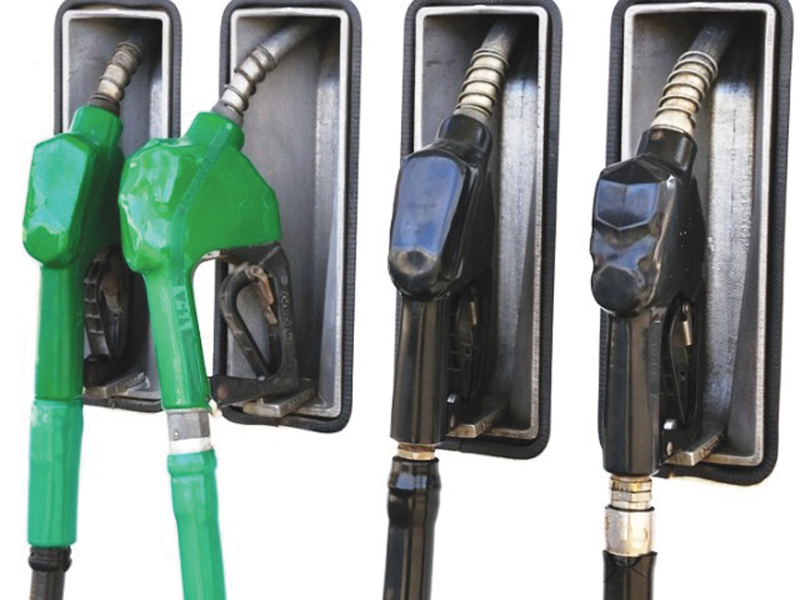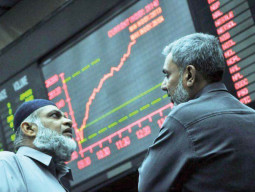
This environment has kept investors at bay. However, some continue to make efforts in the petroleum exploration and production sector, looking at new ways to overcome the energy crisis. This has also resulted in them discovering a number of new gas and oil reserves.
The power generation sector has been badly neglected by successive governments on account of various reasons including political ones. Every government has, however, announced launching projects but bore no fruit. On the other hand, no efforts were made to introduce alternate energy sources. The petroleum products’ import bill rose to an all-time high, consuming a major portion of the country’s foreign exchange reserves.
Alternate energy sources such as wind, solar among others could not be introduced despite being cost effective and achievable. It appears that officials responsible are focused only toward projects that yield them monetary benefits as well.
Rich in natural resource
Nature has blessed Pakistan with vast hydrocarbon and mineral resources, which remain largely untapped despite the success rate of Pakistan’s exploration activity being higher than countries like Canada and the US.
But like the short-term approach of every government that relies on importing petroleum products, the present one is following the same footsteps. This is not only hampering exploration activity but is consuming precious hard-earned foreign exchange reserves. Now, the government is reportedly bent upon importing LNG at very higher rates of $17 to 18 per million British thermal units (mmbtu) with a huge commission of $ 7-8. This is at a time when LNG in the international market has fallen to $10.575 mmbtu.
Import of LNG is another short-term arrangement to meet daily requirements of natural gas. The use of indigenous natural gas as fuel for transport on a commercial basis has already made the situation worse.
The use of natural gas as CNG was introduced on an experimental basis as a cheap and environment-friendly fuel for transport but its unwanted commercialisation at a rapid rate disturbed the demand and supply.
The shortage of natural gas, due to its commercial use in vehicles, not only hurt industrial activity but also affected domestic consumers. Now, the price difference between prices of petrol, diesel and CNG has reduced significantly. But the use of natural gas could not be curtailed.
In these circumstances, the newly-discovered hydrocarbon reserves are still not being utilised due to non-settlement of a long due pricing issue.
The new reserves cannot be linked to the main supply pipelines till a decision is taken regarding its price. It is high time to note that despite the available energy resources, the delay in settling the overdue gas pricing issue by the concerned departments is not understandable.
The case in India
While according to June 13, 2014 issue of upstream, in India, the gas price increase for domestic producers is on the agenda of the newly-elected government. Reportedly, the increase in gas prices effective from July 1, 2014 is likely to be based on the gas pricing formula worked out by the Rangarajan Committee, which could see domestic gas prices almost double to more than $8 per mmbtu.
Indian private sector giant Reliance Industries, UK super-major BP and Canada’s Niko Resources, partners in the D6 block in Krishna Godavari basin, are likely to be the biggest beneficiaries of the price increase. Subject to higher gas prices, these companies have plans to invest $8 billion in the next few years.
In case of a delay, these companies are determined to pursue arbitration.
State-owned Oil & Natural Gas Corporation (ONGC) will also be among the beneficiaries. A committee, headed by Dr C Rangarajan, had proposed that all domestic gas should be priced at an average of liquid gas (LNG) imports into India, US and UK trading hub rates as well as LNG imports into Japan. This formula would have led to a doubling of domestic gas price to $8.4 per mmbtu.
The new government had on June 25 deferred implementation of the Rangarajan formula till the end of September to conduct a comprehensive review of the whole issue.
According to Rangarajan formula, gas prices were to be revised every quarter, and rates would have been $8.8 per mmbtu, leading to a hike in power cost by over INR2 per unit, urea production cost by INR 6,228 per ton, piped gas by INR8.50 per kilogramme (kg) and CNG by INR12 per kg.
Pakistan also needs to devise a gas-pricing formula at the earliest to boost petroleum exploration activity, facilitating the market players and reducing the import bill.
It is unfortunate that the domestic oil and gas producers are not getting due support, which is also keeping foreign companies away.
In order to deal with the prevailing shortage of energy resources, it is the need to add newly discovered gas reserves to the distribution system by finalising the price issue. International financial institutions have already made it clear to withdraw subsidies so it is up to the financial managers to resolve this issue keeping in view the consumers and the producers interests.
The writer is former director media of the Privatisation Commission
Published in The Express Tribune, August 18th, 2014.
Like Business on Facebook, follow @TribuneBiz on Twitter to stay informed and join in the conversation.



1730959638-0/trump-(19)1730959638-0-165x106.webp)













COMMENTS
Comments are moderated and generally will be posted if they are on-topic and not abusive.
For more information, please see our Comments FAQ